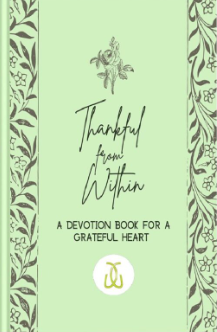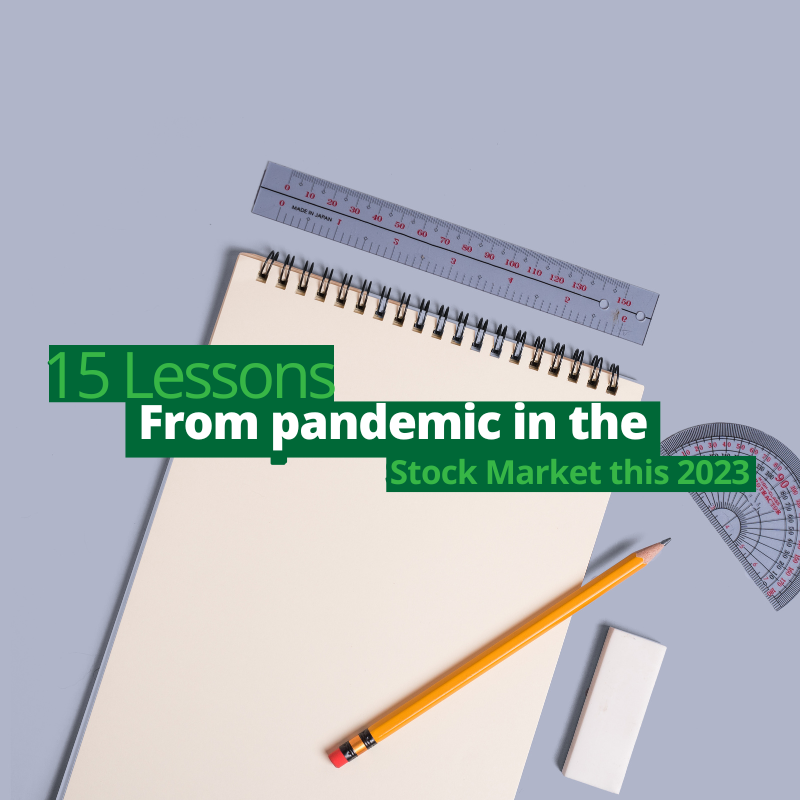Financial, Stock Market
Cite 15 lessons you can learn from the pandemic when your money is in the stock market this 2023?
Cite 15 lessons you can learn from the pandemic when your money is in the stock market?
Emergencies can occur
One obvious takeaway from the turbulent past year is that more people need to work to accumulate an emergency fund of at least one month’s worth of expenses. When faced with transitory shocks to your income, having an accessible emergency fund (held in an accessible form like a savings or checking account) can assist prevent the need for dramatic cuts in expenditure. An emergency fund can assist lessen the effects of short-term economic upheavals, but it cannot compensate for losing your job and going through prolonged unemployment. For instance, many households last year had members on leave for many weeks while their employers were required to close by the government. Additionally, those who faced longer-term unemployment frequently had to wait weeks for benefit payments to begin. In such circumstances, having several weeks’ worth of accessible savings can help prevent the need to make brutal spending cuts or take out expensive loans to cover necessary payments.
We are able to practice fiscal restraint
The pandemic has shown us that it is possible to practice financial restraint. Due to the constraints, we all had to reconsider how much we spent on life’s pleasures, such as travel and eating out. As we reflected on our excessive indulgences, we understood the need to budget carefully and set aside money. Building cash reserves from extra money spent on pleasantries gave me more assurance that I could handle life’s shocks. Many of us valued the additional funds to endure financial hardships such as job loss, lower income from budget cuts or caring obligations, and escalating medical expenses. Whether out of pure boredom or a greater appreciation of life amid constant Covid-related casualties, we also started thinking more about how we should spend our money. Experiences from life frequently act as a catalyst for altering financial routines and mindsets.
When others are afraid, purchase
When other people are afraid is when you should invest. We confronted dangers in 2020 that was unheard of in our lives. All of your defense mechanisms developed over evolution to keep you safe are activated when you are told you are in danger. Unfortunately, in long-term investing, none of these automatic responses are helpful—investors worry about their well-being and not just their portfolios. While it’s common to hear that “this time is different,” there are two elements most bear markets tend to have in common. First off, historically speaking, the best time to purchase equities is when the market is down at least 30%. When buying equities, you had to accept risk and uncertainty in exchange for higher anticipated returns. Second, even though each bear market has unique characteristics, they invariably have an end. To achieve the typical long-term return that draws most people to stocks in the first place, investors must be prepared to lose money occasionally—and sometimes a lot of money. Additionally, your chances of generating returns above-average increase if you can act as a buyer during moments of fear.
Control the risks
Understanding and managing risk is the most crucial personal-finance lesson from 2020. According to the TIAA Institute-GFLEC Personal Finance Index, this is one of the personal finance concepts that people are least knowledgeable about. Even though the risk is a constant in life, we frequently do not adequately protect ourselves from it. Do my family, and I have adequate coverage for potential health issues, especially those brought on by viruses? Do we have enough money to afford the deductible if we have a health plan with a high deductible? Have we protected if someone becomes disabled? Should our long-term disability insurance be altered or increased? Do we have life insurance to safeguard our family if the income earner passes away? These are challenging questions, but the pandemic serves as a helpful reminder that it is always better to be safe than sorry.
You need a will
There has never been a better time to emphasize the necessity of having a will for every adult. Nobody anticipated the magnitude of the tragedy that occurred last year on a global scale. And people don’t want to consider the possibility of passing away one day, which is why they frequently kick the can down the road. However, 2020 has taught us all to prepare for the worst.
Your own financial situation reflects your morals
Many people have restored the link between their finances and the things that matter most to them:
- Their time management.
- How the family’s finances support their domestic life.
- How their careers have enriched their lives, what their investments support, and what they fund.
The events of 2020 served as a reminder of the fundamental reasons behind their financial life—their “why.” Personal finance does not exist in a vacuum; it is determined by the things most important to us. People were reminded of their values last year, and it also aided in identifying what was unimportant. Individuals believe that all the specifics surrounding finances and money should ultimately serve the common goal of enabling us all to live the lives we desire. That has a practical impact on our choices about our sources of income, how we use our resources, and how we make investments.
Flexible retirement plans are necessary
More people are feeling the need to put off retiring as a short- and long-term financial fix due to the Covid-19 pandemic. And that serves as a reminder to many would-be retirees of the value of not having rigid retirement plans and expectations.
Things won’t always be bad or good
It’s a significant error to extrapolate the recent past too far into the future. Recency bias is one of our main weaknesses as humans because of this. We learned a valuable lesson from last year in both directions. Early in 2020, optimism predominated as the market reached record highs. Compare that to March, when it appeared that things would never improve. Investors would have done well in both situations to avoid assuming the recent past will last indefinitely. Because they believed things would only worsen, several of the investors we met with in March intended to make significant adjustments to their portfolios. This is why the cornerstone of almost everyone’s investment strategy should be a diversified portfolio that you can stick with regardless of the state of the market.
You ought to employ a three-bucket approach
Every investor should always have an investment plan and strategy that can withstand events like what we have experienced, as the Covid-19 recession has once again demonstrated. As investors reevaluate how they should invest their money, a three-bucket strategy is a prudent course of action. Worth of expenses in short-term assets, including cash or short-term bonds, should be included in a short-term bucket. There should be an intermediate-term bucket for money that won’t be needed for two to five years, such as core bond funds. Money that won’t be required for at least five years should go into a long-term bucket, which can be used to buy stocks. With this strategy, investors can be ready for any short-term risks, like recessions caused by the coronavirus, without compromising the integrity of their portfolio.
Stay Invested
The turbulent market of last year made it even more crucial to maintain your investment. Near the conclusion of the first quarter, it seemed as though the financial markets were doomed. Market declines of over 10% have been seen on several days. Many investors sold their stocks in a panic, expecting the worst. The markets have since recovered, and anyone who tried to time the market and chose to be more cautious is likely feeling remorse.
MUST-READ AND SHARE!
2023 Your Practical Wedding Guide
Your Ultimate Access to Kuwait Directories in this COVID-19 Crisis
Investments and Finance Ultimate Guide
OFW FINANCE – Money News Update that you need to read (Table of Contents)
A Devotional for having a Grateful Heart
Stock Investment A Beginner’s Guide
How To Save Money Amidst Inflation
Philippines Best Banks with High-Yield Savings Return
Savings Dos and Don’ts
Essentials Before Applying For a Credit Card
Pag-IBIG Fund Guide
SSS PESO Fund – A Guide
Credit Card Starter Guide for Beginners
If you like this article please share and love my page DIARYNIGRACIA PAGE Questions, suggestions send me at diarynigracia @ gmail (dot) com
You may also follow my Instagram account featuring microliterature #microlit. For more of my artworks, visit DIARYNIGRACIA INSTAGRAM

A multi-award-winning blogger and advocate for OFWs and investment literacy; recipient of the Mass Media Advocacy Award, Philippine Expat Blog Award, and Most Outstanding Balikbayan Award. Her first book, The Global Filipino Bloggers OFW Edition, was launched at the Philippine Embassy in Kuwait. A certified Registered Financial Planner of the Philippines specializing in the Stock Market. A recognized author of the National Book Development Board of the Philippines. Co-founder of Teachers Specialist Organization in Kuwait (TSOK) and Filipino Bloggers in Kuwait (FBK). An international member of writing and poetry. Published more than 10 books. Read more: About DiaryNiGracia



Peace and love to you.